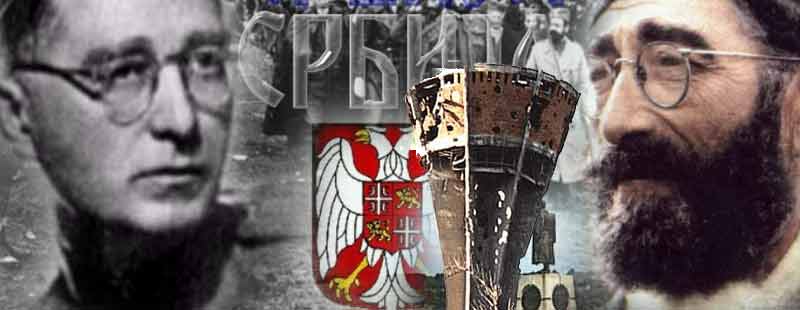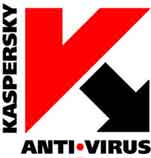Nazis in Croatia
NAZI NOSTALGIA
IN CROATIA
by Diana Johnstone
Sept. 6, 1999
When I visited Croatia three years ago, the book most prominently displayed in the leading bookstores of the capital city Zagreb was a new edition of the notorious anti-Semitic classic, "The Protocols of the Elders of Zion". Next came the memoires of the World War II Croatian fascist Ustashe dictator Ante Pavelic, responsible for the organized genocide of Serbs, Jews and Romany (gypsies) that began in 1941, that is, even before the German Nazi "final solution".
However, if the Croatian fascists actually led, rather than followed, the German Nazis down the path of genocide, that doesn't mean they have forgotten their World War II benefactors. After all, it was thanks to Hitler's invasion of Yugoslavia that the "Independent State of Croatia" was set up in April 1941, with Bosnia-Herzegovina (whose population was mostly Serb at the time) as part of its territory. And the hit song of 1991, when Croatia once again declared its independence from Yugoslavia and began driving out Serbs, was "Danke Deutschland" in gratitude to Germany's strong diplomatic support for Zagreb's unnegotiated secession.
In the West, of course, one will quickly object that the Germany of today is not the Germany of 1941. True enough. But in Zagreb, with a longer historical view, they are so much the same that visiting Germans are sometimes embarrassed when Croats enthusiastically welcome them with a raised arm and a Nazi "Heil!" greeting.
So it should be no surprise that this year's best seller in Croatia is none other than a new edition of "Mein Kampf". This is not a critical edition, mind you, but a reverently faithful reproduction of the original text by that great European leader, benefactor of Croatian nationalism and leader of the Third Reich, Adolf Hitler.
The magazine "Globus" reported that "Mein Kampf" is selling like hotcakes in all segments of Croatian society. For those who want to read more, there is a new book entitled "The Protocols of Zion, the Jews and Adolf Hitler" by Mladen Schwartz, leader of the Croatian neo-Nazi party New Right, and "Talks with Hitler" by the Fuhrer's aide Herman Rauschning, as well as various other memoires celebrating the Ustashe state whose violent massacres of Serbs shocked the Italian fascist allies and even German diplomatic observers at the time.
The dissident Croatian writer Predrag Matvejevic, who has Italian citizenship, has sent the Rijeka daily "Novi List" an open letter to the Association of Croatian Writers and the Croatian center of the International PEN club denouncing their failure to protest at this promotion of the absolute worst of racist Nazi propaganda. "Passing through the streets of Zagreb, Split, Dubrovnik and other cities in Croatia, countless Croatian citizens whose parents took part in the anti-fascist Partisan struggle are ashamed to see the works and photographs of Hitler and other Nazi and Ustashe criminals displayed in bookshop indows," he wrote. "Their publication is a disgrace to Croatia and its culture". This is "no accident", he said, "in Tudjman's Croatia." For this is the same regime, he noted, that has allowed the destruction of thousands of monuments to the victims of fascism, from one end of Croatia to the other, and in which mass is celebrated non-stop in honor of the Ustashe "fuhrer" Pavelic in the churches of Split and Zagreb, the Italian daily "Il Manifesto" reported on September 3.
In another report in "Il Manifesto", Giacomo Scotti reported from Zagreb that the terrorist campaign by nationalist bands led by the neofascist "Croatian Party of Rights" has been stepping up its pogroms against the small number of Serbs now living in the Krajina region. The overwhelmingly Serb population was driven from the Krajina by the U.S.-backed "Operation Storm" in August 1995. Officially, under heavy international pressure, the Croatian government has allowed some Serbs to come back, mostly old farmers. However, on August 25, the Croatian Supreme Court denied local tribunals the right to hear complaints from citizens who had not been allowed to enter their property, thus encouraging lawlessness.
With the complicity of the authorities, armed bands have been breaking into the few homes reoccupied by their Serb owners, beating and threatening old people and devastating their farms, chopping down trees and destroying crops to force them to leave. These facts are contained in two letters to the Croatian government from the Croatian Helsinki Committee for Human Rights.
By now, however, it is abundantly clear to everyone that crimes of intimidation, physical violence, murder, robbery, vandalism or "ethnic cleansing" are of no interest to Western governments, to international media or to any court in the world so long as the victims are Serbs.












